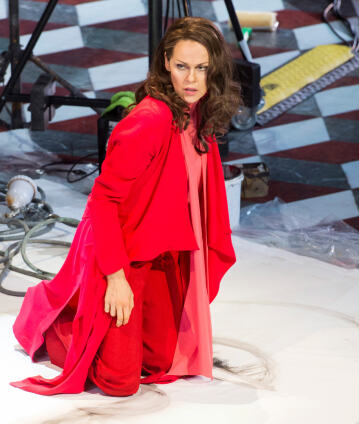Simon Rattle dirige « Tosca » à Baden-Baden

La Tosca de Puccini fait alterner sur un rythme effréné les scènes d’amour et d’intimité avec des moments de jalousie, de haine et de brutalité sadique. Puccini communique cette gamme de sentiments à travers un langage musical psychologisant d’une beauté irrésistible. Lors du Festival de Pâques de Baden-Baden 2017, Simon Rattle a dirigé l’opéra sous les acclamations du public. Les rôles principaux étaient interprétés par Kristine Opolais, Marcelo Álvarez et Marco Vratogna.
Berliner Philharmoniker
Sir Simon Rattle
Kristine Opolais
Marcelo Álvarez
Marco Vratogna
© 2017 EuroArts Music International
Catégories
Artistes
Nos suggestions
- Simon Rattle dirige la Neuvième de Beethoven à Madrid
- Simon Rattle conducts Wagner’s “Götterdämmerung” at the Festival d’Aix-en-Provence
- Simon Rattle dirige l’Europakonzert 2015 à Athènes
- Simon Rattle dans la Septième de Bruckner à Taipei
- Simon Rattle dirige une soirée Beethoven à Taipei
- Kirill Petrenko dirige Mozart, Berg et Brahms au Suntory Hall de Tokyo